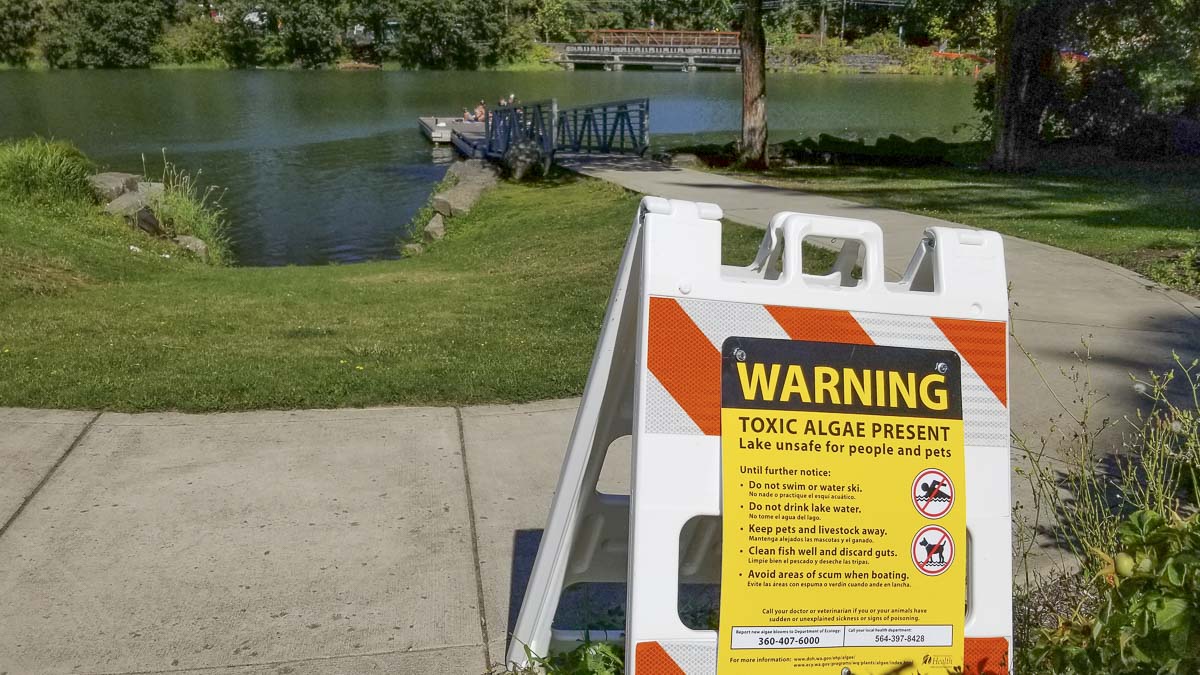Clark County Public Health officials are warning area residents against swimming or recreating in either lake
As the end of summer nears, Clark County residents can still be viewed enjoying some mild, comfortable seasonal weather that is seemingly perfect for outdoor recreation. Couple the pleasant weather conditions with the fact that many area residents are dying to get out of their homes after months of COVID-19 restrictions and you have a strong urgency for folks to flock to area lakes for a dip in the water.

However, Clark County Public Health officials remind area residents that toxicity levels at Lacamas and Round Lakes in East County are still at the point where they are recommending no swimming or recreating in either lake. However, the county health department has extremely limited enforcement capacity, so those who choose to ignore the warnings and cautions likely won’t face any repercussions, even though they will expose themselves to health risks.
“If I had my way, I would be out there with a blow horn,’’ said Brian Schlottmann, program manager for Clark County Public Health. “The more we can get the message out the better.’’
Schlottmann understands the dynamic that is creating the actions of so many area residents, who are ignoring the county’s warnings.
“I think what is happening is we have been posting so many signs so often and so frequently, people are having sign fatigue,’’ Schlottmann said. “People have been isolated and told to stay home and stay away from people they want to be outside and recreate. It’s really hard times.’’
Throughout the summer, results from water samples taken from Lacamas Lake and Round Lake have revealed cyanotoxins above the threshold levels recommended by the Washington Department of Health. Danger signs continue to be posted at public access points to the lakes. Public Health is advising against all recreating in the lake, including swimming, kayaking, paddle boarding, canoeing and water skiing.
Blooms of cyanobacteria, also known as blue-green algae, are currently present at both lakes. Blue-green algae can pose a significant health risk if the cyanobacteria or toxins are ingested, inhaled or come into contact with skin. Inhaled bacteria or toxins can cause wheezing, coughing, chest tightness and shortness of breath. Skin contact can lead to rash, itching, blisters and eye irritation.
If water with cyanotoxins is accidentally swallowed, symptoms can include abdominal pain, diarrhea, vomiting, and numbness of the lips, tingling in fingers and toes, and dizziness. The toxins can be fatal to pets that drink the water.
Public Health has been monitoring cyanobacteria blooms at Lacamas Lake and Round Lake since April and will continue to monitor the lake. As long as blooms are present, Public Health will take weekly water samples to test toxin levels. Signs will be updated as conditions change.
Currently, the situation is considerably worse at Lacamas Lake than Round Lake. Toxicity levels, literally, change day by day, hour by hour according to Schlottmann. But, levels at Round Lake have been under the acceptable threshold for the past two weeks. Still, those recreating should avoid algae-based foam present in the water.
At Lacamas Lake, about 70 percent of samples taken this summer have exceeded the acceptable threshold, sometimes at a level of 10 times the limit.
“When in doubt, stay out,’’ Schlottman said. “We want people to avoid the water at all contact.’’
Lacamas Lake has been on advisory for 20 weeks, almost the whole summer. “It doesn’t paint a pretty picture,’’ he said.
Schlottmann reported that the dangers are even greater for dogs, who can’t differentiate between clean water and contaminated water. In addition, dogs have a smaller body mask, which makes them at a greater risk.
Schlottmann said there are other swimming and recreational areas in Clark County where area residents can enjoy the water without the same dangers of toxicity, including Battle Ground Lake, Vancouver Lake and Klineline Pond. He also added that areas with moving waters are far less susceptible to algae, but obviously those include other safety risks.
“But, there are a number of access points where people can get to to cool off,’’ he said.




